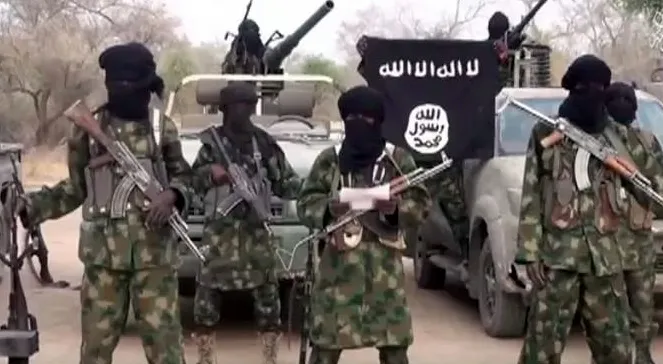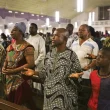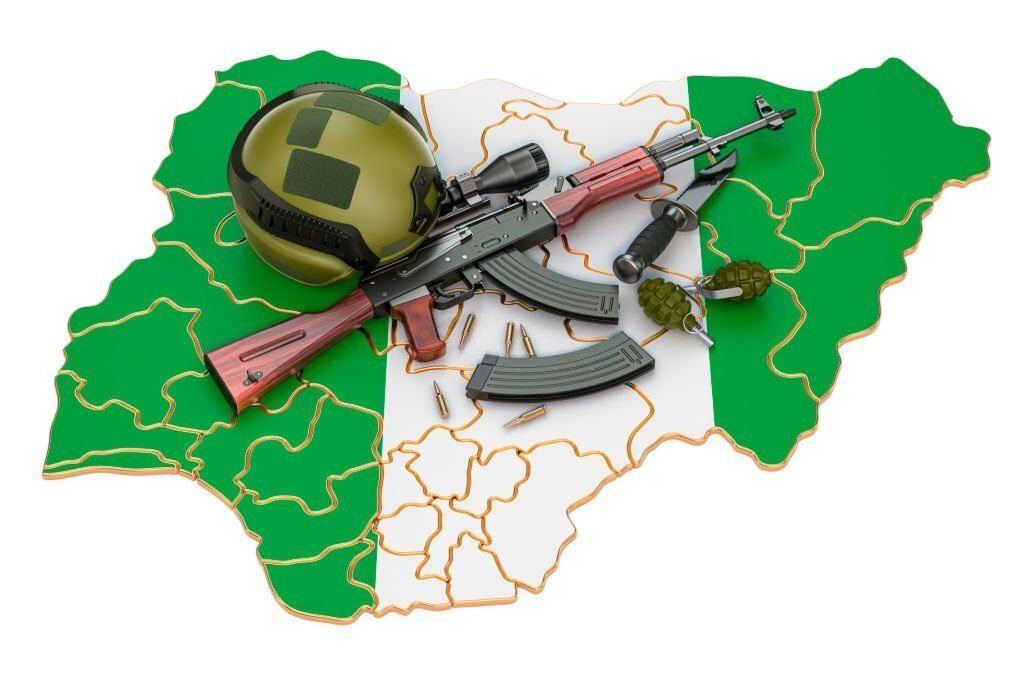Introduction
Over the years and in most recent times, Christians’ view on when a just war declaration may be appropriate has called for reinterpretation again and again in Nigeria; this is causing a lot of ethical tension, and rightly so. The onslaught of the radical Islamic group called Boko Haram against Christians and church buildings in the Northern part of Nigeria, combined with recurrent violence and massive killings of predominantly Christian populations by the Fulani Herdsmen across the length and breadth of the country, is triggering a debate among Christians. The Christians are asking themselves whether to retaliate and defend their territory or whether they should watch and allow Christianity to be gradually wiped out of the country, as it happened in North Africa. Some proponents argue that it is wrong and incompatible with the ideology of Christianity for Christians to take up arms. The opposing view cites the ancient Israel war crusades against their enemies in the Palestine area as a precedent for the declaration of war.
The issue currently confronting Nigeria as a sovereign state has surpassed a petty misunderstanding between the Northern Muslims and the Christians. It’s looking like a potential crisis capable of tearing down the nation’s moral fabric. The goodness of peaceful co-existence among the Muslims and the Christians that comprises over 2,000 ethnic groups is being threatened there. The battle for regional supremacy is growing increasingly tense as radical Islamic groups, and the Fulani Herdsmen seem to be benefiting through remote support from the Northern Nigeria political class. The public condemnation of the brutality perpetrated by Boko Haram has been done only by the Christian community until recently. The northern elite acknowledges the damage Boko Haram is doing to their region but still condole their activities for cheap political gain. The Muslim clerics, political leaders, and opinion leaders of Northern Nigeria seem to have adopted a policy of sitting on the fence and are yet to condemn or denounce Boko Haram’s activities publicly. David Oyedepo summed this up by identifying “the struggle for political power among the nation’s ruling class as the reason behind the insurgency and many other socio-economic and political crises confronting Nigeria.”
Some people have argued that Boko Haram/Fulani Herdsmen are not just targeting Christians but any perceived enemies who cross their path. While it is true that there have been casualties among non-Christians, the number is a far cry from the comparable numbers of Christians that have been murdered in cold blood. Evidence to indicate that their target is the Christian faith includes the attack carried out on Christmas day at Saint Theresa’s Catholic Church in Madalla, where up to 40 people, including children, lost their lives in a bomb blast. On the same day, similarly, Boko Haram groups carried four other bombs targeting Christians, which were planted in churches in Jos and Yobe State, with many casualties being recorded in the inhumane attacks.

Christians are ready to fight back because they see the attacks of the Boko Haram on churches on Christmas day as a signal and a wake-up call for drawing the battle line by the radical Islamic group. Some Christian leaders, notably Bishop David Oyedepo and Apostle Johnson Suleiman, are singing a reprisal war song instigating their congregation in preparation for taking revenge for the loss of lives of their fellow Christians. In response to this war song, the National Security Adviser, NSA Gen. Andrew Azazi, at the time, attempted to appease the Christians by saying:
…we can’t have a situation where we think that one bad turn deserves another.
We are Nigerians and like we always say, I don’t see any major conflict between the Christian community and the Muslim community. You will find a situation where certain individuals for whatever reasons, are causing these problems…Retaliation is not the answer because if you retaliate, at what point will it end? Nigeria must survive as a nation, that is the key thing.
Nigeria is a country with great potential and substantial human resources. Still, the ethnoreligious violence within the country has dramatically dampened the ray of hope that could unleash the country’s potential.
Methodology Part I
David Oyedepo, in 2011, while responding to the bomb blast which occurred at the headquarters of the Nigeria police in Abuja, said that Boko Haram is beyond a religious matter but a national issue that the federal government should frontally tackle. He characterized the attack as being too close and risky to ignore and as one which must be dealt with for the sake of national peace and stability.
When Boko Haram started, they began as sects fighting against one another and not necessarily fighting against the country. Their founder, the late Mohammed Yusuf, who had alliances with some politicians, was gruesomely murdered by the military after a disagreement between him and some of his political allies. Shortly after his death, his aggrieved followers decided to seek vengeance. To be taken more seriously and make their mission more impactful, they began to target Christians because they reasoned that their group would quickly gain more worldwide recognition if Christians were targeted. Perhaps the initial unclear mission of the Islamic sect made some proponents conclude that they were not just targeting Christians. But recent statistics have shown clearly what its real mission is. The Christians are now the primary target of these radical Islamic groups. The Christmas bombing and the abduction of over 200 young girls, mostly Christians, are a case in point. Furthermore, another glaring example is the intermittent unchecked violence of the Fulani Herdsmen across the country, but mainly in Southern Kaduna and other parts of the country. This evidence is a critical situation that has spurred some Christian leaders to declare Just War as a means of reprisal after sensing the perceived biases of the Northern political class against stopping these deadly groups.
Open Doors, a charity that monitors religiously motivated violence and discrimination, wrote about the following statistics regarding Christian persecution in Nigeria; the report indicates:
“there were more recorded killings of Christians due to their faith in Northern Nigeria 2015 than in the rest of the world put together; Four thousand twenty-eight out of a worldwide total of 7,100 reported the death. More than 2 million people, many of them Christians, have been forced to leave their homes in northern Nigeria, where the Islamist terror group Boko Haram is waging a campaign.”
The report also criticizes the violence against Christian farmers by Hausa-Fulani tribe members, conservatively estimating more than 1,500 religious motivated killings. Both Boko Haram and Hausa-Fulani Herdsmen are subtly carrying out religious cleansing by targeting Christians for eradication.
However, more worrisome is the reprisal war song of some Christian leaders in response to this ethnoreligious social menace, the Just War declaration. I want to argue that this Just War Declaration may escalate the problem and threaten the moral fabric of national stability and peaceful co-existence among the Muslims and Christians within the country. Painfully, the government in power has not shown reasonable commitment to resolving the problem, nor have they shown sympathy to Christian groups. No arrests have been made, nor have any major prosecution of the perpetrators. Christians are concerned with the subtle plans and an agenda for Islamization of the country, citing how Christianity was ferociously wiped off in North Africa as a precedent.
Some people have argued with a somewhat rhetorical question. Do Christians have to wait until they are virtually wiped out with no hope of help from the government before they know what to do? The Augustinian view strongly forbade private individuals from declaring war or summoning people together to go to war, but some Nigerian Christian leaders think otherwise. In one of his sermons, Bishop David Oyedepo spoke angrily, saying: If Nigeria wakes up and waits for the church to rise. There will be no More nation, what nonsense, what Islamic demons. If Nigeria waits for the church to rise, Nigeria will disappear as a nation. I was told from a report that they were targeting this church; I said, what? If you see anybody here, kill him, kill him and spill his blood on the ground. I am saying that to you! What nonsense! What devils! You think our God is an idol? If I put fire on your tail to overrun the city, you will do it in one minute.
While I am not an advocate for public preaching of violence on the pulpit because of the Non-existence of it in the New Testament. Too, it seems to me that Augustinian model for the declaration of just war is ineffective, which has made the situation in Nigeria chaotic. The Christians in Nigeria simply do not have the government on their side as a just umpire with Whom they could seek redress from as the Augustinian view proposes. This is becoming an ethical concern whereby Christians have chosen to react violently to the serial attacks on them after the failure of the government to protect citizens’ lives and properties. They want to prevent a religious genocide of their group in the country, wherefore someone like Oyedepo and others are advocating for a just war on their enemies. I supposed that if this is not handled with care. The outcome may be disastrous for the nation.
Similarly, focusing on Thomas Aquinas’s social ethics on the doctrine of Just War. Thomas Aquinas, like Augustine, affirmed that war sometimes could be a necessary evil. He gave certain instances under which a war can be considered just. First, that it be waged under the sovereign’s authority, second that the cause is just, and third, that those who wage war should have a “rightful intention” to intend the advancement of good or the avoidance of evil. It is in the light of the third reason on which a just war could be waged that I want to argue using the killing of Christians in Southern Kaduna, Nigeria, and some other parts of the country by Fulani herders as my reference point. Since the assumption of President Muhammud Buhari into office in 2015, himself a Fulani man, there have been a series of killings of innocent citizens across the country, mainly in Christian dominated areas, with the multiple killing of Christians in Southern Kaduna, an incident in which the government has remained unperturbed, neither condemning the wicked act nor bringing the perpetrators to justice. In retaliation to this cowardly act, a popular televangelist named Apostle Johnson Suleiman ordered his congregation to kill any Fulani herdsman they see wandering around them and the church premises. In a way, this pronouncement runs parallel with Thomas Aquinas’s third reason why a just war could be waged. I have my reservations about this kind of pronouncement. Additionally, the Apostle Suleiman cited the killing of Goliath by David which he considered not a spiritual exercise but an action in self-defense and a justification for his pronouncement.
While I share in the plight of those being killed in Southern Kaduna and the vented anger of Apostle Suleiman over these needless killings of fellow Christians, I am also persuaded that if such a position is continued to be maintained publicly without restraint, over time, Christianity will become a violent religion and will all together loss all its decency. This will be in the sharp contrast between the actions of these Christians and what Jesus preached as well as what the early Christians stood for. I support resistance and action taken in self-defense by any concerned Christians. Still, the ethical concern is that Christianity is supposedly a religion of peace and a vehicle for pursuing a global, peaceful co-existence. Apostle Suleiman’s public preaching and instigation of violence have their ethical lapses because of the possible misuse of such liberty to kill. As a way of proposing a solution, I believe there are more viable options that could still be explored. Thomas Aquinas, for instance, identified two effects of the legitimate killing of someone in self-defense. He argued that saving one’s life altogether is lawful; while doing this, one may also kill an aggressor. Aquinas posits that this deed is unlawful unless one uses more than necessary violence. He argued further that the latter would be unlawful, even when accompanied by good intention if it is out of proportion to the ends. This is perhaps, one of the unintended consequences that I think the preaching of violence on the pulpit may result in if not checked. I would suggest that efforts should be directed at ensuring that the government is held more accountable and sensitized to be more alive to their responsibilities of safeguarding the lives and properties of the citizens.
Part II
In adopting the various theological lenses to be used in addressing the threat to national
stability and peaceful co-existence in Nigeria and in considering the religious volatility that Nigeria is currently enmeshed, a violence that has been building up over the years. I think that Joseph Fletcher’s approach would present a good way to start relating a theological perspective or theory to the problem which may eventually point us to a possible solution. Joseph Fletcher proposed an ethic of intuition rooted in love. Inferring that under a specific situation, love decides “then and there” what is the most loving thing to do. The approach, according to Fletcher, does not necessarily draw from a rich theological context other than the pure connection to Christian love.
Conversely, Paul Lehmann, whose work could be said to be a step further from Fletcher’s proposition foresaw ethics in a “Christian context,” which connotes the situation confronted on the one hand, and the theological context on the other hand. He argues that when the two encounters one another, then Christians are obligated to do what God will do at that moment in time.
Similarly, Bernard Haring affirms that the primary justification of moral theology is not
first of all about “decision-making” or “discrete acts,” but its primary preoccupation is gaining the right vision and subsequently carefully evaluating the main standpoints with the intention to come up with the most apparent decisions based on some specific values under God.
As laudable as this approach may seem, one of the critical challenges to its practice, as observed by Ramsey, was the consideration of Just War even when carried out under its main traditional principles and criteria. Ramsey argues that war with its attendant evils is perceived to be wrong unless it can be justified using the traditional criteria. This is important more so to prevent a more disastrous evil when viewed from the lenses of the Christian gospel of love and justice.
Paul Tillich reiterated the same concern when he argued that the church, as. representatives of the kingdom of God must condemn a war when it seems to possess the outlook of justice but, in reality, is a universal suicide. Tillich does not believe in using military or economic weapons as tools for advancing the cause of the gospel of Christ. He disapproves of using an atomic weapon in the war, claiming it is a Just War. He argues that such a purpose cannot serve the unity that belongs to God’s kingdom.
A declaration of war, in my own opinion, is perhaps not the most fitting thing to do in Nigeria, especially when we consider the assault of the radical Islamic group (Boko Haram) and the numerous killings of Christians by the Fulani Cattle Herdsmen. As I reflect on the call for war by some Nigerian Christian clerics such as Apostle Johnson Suleiman and Bishop David Oyedepo, I am afraid the call may turn out to be something that the Nigerian Christian community may not be able to handle. This is rightly so because of the natural innate desire in man to do evil arising from the loss of man’s original perfection, as pointed out by Reinhold Niebuhr. Niebuhr argues that all statements and definitions of justice are morally depraved, even among some of the most reasonable men. He posits that such descriptions are often colored by personal interest rather than the consideration of the big picture.
My response to the call for war by the Nigerian Christian leaders against the Muslims is mixed feelings about the ultimate repercussion of such war. My immediate fear is the tendency of Christianity to fall prey to its definition of justice, losing its sensibility and decency under those disguises of the defense of the faith. Yoder, stating the political relevance of Jesus Christ, argues that Christ submitted to the agony and humiliation of the cross rather than acted in ways that will contradict God’s way of love. Yoder, responding to the question raised by some people about the crucifixion of Christ as the impotence of God’s way of love, asserted that the resurrection of Christ was God’s final answer to that question. He posits that “through the resurrection, God gave the victory to Jesus and the way of love and made permanently clear that the way of obedience is the only faithful response of humanity to the injustices and dilemmas of history.”
On this premise, I draw inspiration from Karl Barth’s proposition of “Tolerance” by the Christian community, which he considers to be the ultimate wisdom in the “religious” sphere. Barth argues that if the Christian community repudiates the use of physical force and has not shed blood, it is not because they are so good but rather because of a lack of opportunity. The craving for power and the battle for supremacy has always been the secret undertone of individuals and different groups, from time immemorial, the Christian community inclusive. This underlies the reason why Christian nations in Europe could go to war against one another for thirty years and why Hitler, who Christians supposedly voted in, could lead the whole German nation against the unprecedented killing of six million Jews in the concentration camp – that underlying craving for power and battle for supremacy between groups.
Another viable theological option as a way forward to address the irrationality of the religious, economic, political, and criminal justice of the Nigeria-State is the Thomas More vision of an ideal society (a utopian community). He believed that, in a utopian society, the people would not need to be hungry in the face of abundance or be afraid of sickness or old age; subsequently, the people would have no reason to take arms against one another and engage in mindless killings. He foresaw a situation whereby all will work productively to secure equal sharing of the result of their labor and do everything in common in a communal setting. This, I suppose, should be the aspiration of every Nigerian citizen.
Part III
What is the most fitting thing to do? Rather than the Christians declaring a Just War to seek revenge and solutions to the perceived favoritism of a government towards the perpetrators of those mindless killing of Christians because of political, religious, and biased regional interests. I will propose that Christians adopt the Martin Luther King Jr. non-violence approach, which is very effective as a moral and Christian means of seeking justice, rather than using an immoral means of a declaration of war, which historically has led to shameful scandals being associated with the church. Declaration of Just War is never the way out of the present predicament. Reinhold Niebuhr observes that individuals tend to be more sensible and act more rationally than as a group. If Christians declare war against Muslims, they will become dangerously immoral as a group mind, no matter the kind of persons that constitute such a group. A group is generally known not to possess a soul or a conscience and therefore can act recklessly without remorse.
Martin Luther King Jr., in his letter to his fellow clergymen from the Birmingham Jail, observed that “injustice anywhere is a threat to justice everywhere. Whatever affects one directly affects all indirectly.” I cannot agree more with King on this statement. The statement is as relevant today, just as when it was first uttered during the civil rights movement and the emancipation of the blacks in America from injustice and racial cruelty. King adopted the non-violent campaign approach to seek justice for the blacks, who, on countless occasions, have suffered awful brutality and unjust treatment from white folks, primarily because of their skin color.
When measuring the potency of his approach, King usually asked himself and his collaborators questions to live to the truest virtue of the non-violent approach which they adopted. The questions were: “are you able to accept blows without retaliating?” “Are you able to endure the ordeal of jail?” These questions are of utmost importance to King because they depict one’s character when confronted with the brutality of the oppressor without reciprocating through violence. According to King, the goal is to use non-violent direct action to generate a crisis and stimulate tension in which the oppressor, who in the time past has resisted rationality and equality without prejudice, now has no further ground for such resistance. While it is reasonable to suggest that Boko Haram and the Fulani Herdsmen are not reasonable enough to understand the virtue of non-violence, it is the conscience of the government that this approach must awaken. It is a strategy to call the government to order and make them more responsible for securing people’s lives and properties.
Again, Jon Sobrino’s advocacy for forgiveness is another proposed way of arriving at a solution; I believe this is a crucial and viable option. The whole Christian faith is based on the virtue of forgiveness. Sobrino observes that Jesus’ special affection for sinners, keeping company with them and eating a meal with them, is a sure sign of victory over social segregation, which is also very relevant in the current religious tension in Nigeria. Peter once asked Jesus, how many times should my neighbor offend me in a day and I forgive him? Up to seven times? Jesus replied I say not unto you, up to seven times but up to seventy times seven in a day (Matthew 18: 21-22). I agree that this is easier said than done, but that is what the scriptures have commanded us to do. The church must embrace and unleash the virtue of forgiveness because even though Jesus was dying on the cross, he still found time to pray for his crucifiers. Likewise, Stephen, too, after his witnessing and proclamation of the glorious gospel of Christ and being condemned to death by stoning, prayed to God to forgive his killers. In our contemporary time, we see other great leaders like Mahatma Gandhi and Nelson Mandela adopting the same forgiving spirit and opting for the non-violence approach to fight for a just cause in their respective communities, rather than instigating bloody violence that will result in massive killings and destruction of properties.
I must admit that Nigeria, since its independence in 1960, has been governed by the ruling class more as a lawless State than as a State that has respect for the law. This is perhaps the frustration of many of the Christian leaders who have been very disappointed by the government’s lackadaisical attitude. Hence the declaration of Just War to prevent ethnoreligious cleansing from being subtly carried out by the Boko Haram/Fulani Herdsmen.
Conclusion
Christians must not engage in war because through the grace of conversion or regeneration, they have been born anew into God’s Kingdom. Therefore, their citizenship is no longer of earthly origin but now of heaven (Philippians 3:20). The Christian is supposed to first and foremost obey the law of heaven, which is rooted in love, rather than engage in brutality and cruelty in a pretense of protecting the faith. The love ethic is consistent with charity towards God and neighbor and must remain their watchword. They must be reminded that love is the fulfillment of the law (Romans 13:8-10, Galatians 5:14). As an heir of the kingdom, love should be their cloak, just as hate and violence are the warring nations’ lot. It is impossible to reconcile the gospel mission founded on love and salvation with the ferocity and barbarity that goes with warfare. Samuel Booth-Clibborn admonished that “a Christian should not fight because Christ sent his disciples into all the world, not to improve society employing laws, nor settle international quarrels employing wars but only to save men…Just as nations send their soldiers to the ends of the world to kill, so the church has sent hers to save.”
William Burt McCafferty challenged us with this question that Peter asked Jesus from the Bible “Shall we fight with the sword?” or “Shall a Christian go to war?” He implored us to wait for the answer and not be impatient with an impulsive decision. He quipped that we should not begin to reason from a realistic perspective but wait for what God would reply with. Of course, the reply of Jesus to Peter and the other Apostles is compelling. Jesus answered, “Put up again your sword into his place” (Matthew 26:51). McCafferty argues that this is precisely what God is saying to the body of Christ today. Christians are not to engage in some mindless killings of fellow-creature who are God’s image like them. The Apostle Paul opined that the weapons of our warfare are not carnal (Corinthians 10:4) because we are not warring against flesh and blood but against principalities and power and against spiritual wickedness in high places (Ephesians 6:12-13). Rather than the Christians declaring Just War on the Muslims, I will encourage them to look towards Thomas More’s vision of a utopian society, where he envisioned a community of peace and brotherly kindness, a kingdom where the lamb and the lion can dwell together, and a child would act like a prince among them (Isaiah 11:6).












Just wish to say your article is as surprising. The clearness in your post is just cool and i could assume you’re an expert on this subject. Fine with your permission allow me to grab your RSS feed to keep updated with forthcoming post. Thanks a million and please keep up the enjoyable work.
Thank you for the kind words